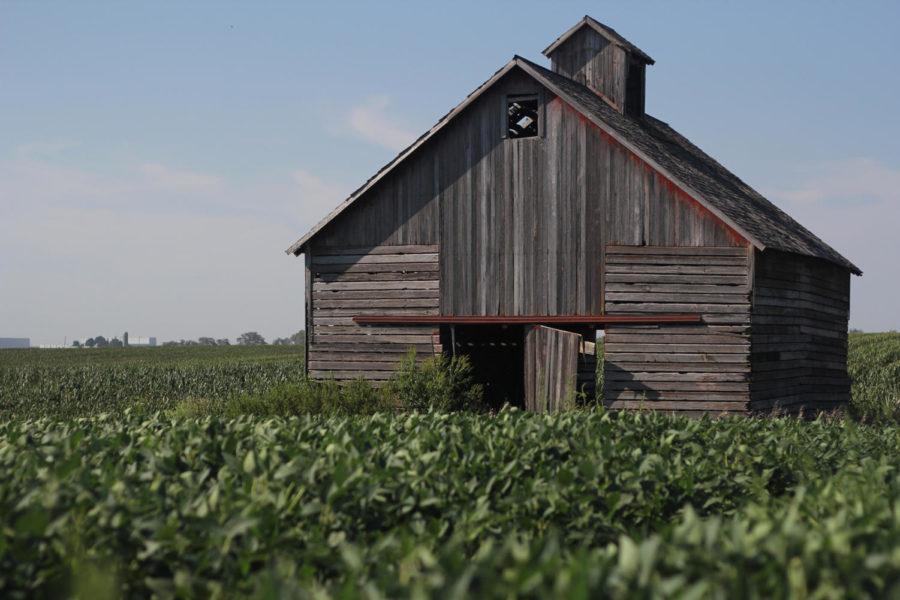Daily: Agriculture, Iowa State collide at an ironic intersection
Brian Achenbach/Iowa State Daily
Columnist Jaiden Shahan shares his thoughts on Iowa’s Nutrient Reduction Strategy.
August 26, 2013
Iowa State’s roots are founded in agriculture. In the 1850s, the university began as the State Agricultural College and Model Farm, from which many agricultural discoveries and practices have evolved. Today the College of Agriculture and Life Sciences has 15 different departments dedicated to the many aspects of agriculture. What makes Iowa State so interesting is the growth and evolution of agricultural studies here mirrors changes in the agricultural industry of the United States.
In the history of the College of Agriculture and Life Sciences it is noted that: “The college is founded on the ideals that higher education should be accessible to all and should teach liberal and practical subjects, ideals that are integral to all land-grant universities.”
While Iowa State has accomplished these goals, we are a university who offers a wide variety of “liberal and practical subjects,” I have found that we have also made barriers in our divisions created by majors and studies.
As I previously said, agricultural studies and practices developed at Iowa State have often mirrored industrial agricultural practices in the country. For example, many pesticides and genetically modified crops were created and introduced into the industry by people at Iowa State. In today’s practices divisions have arisen between those who believe in large-scale farming and those who support a return to small-scale, local and organic agriculture.
In my experiences speaking to students in agriculture, these dichotomies are evident. On the one hand, there are agricultural studies that promote a large-scale meat industry, GMOs, the development of pesticides and a monoculture model for agricultural practices in the United States.
On the other hand, there are also studies devoted to sustainable agriculture, organic and small-scale practices, and stewardship of the environment. I am not here to argue about which agricultural practices are correct, though I most certainly support small-scale, local and organic agriculture.
What I do want to emphasize is the necessity for communication between these groups that hold opposing beliefs about agriculture. As students at Iowa State, we are in the heartland of farm country. We see the products of our industrial innovations in the fields, slaughter houses and feed lots that surround us. We cannot ignore that we are a part of the agricultural industry whether we study it or not, we are all consumers of the industry.
In a column I published last year, “What responsibilities do writers have in food politics?” one reader told me that I had no right to be writing about issues related to the food industry simply because I was not studying animal science or agriculture. Apparently, this meant I had no authority on the subject. I understand that I do not have the same understanding or perspective on the inner-workings of a farm or raising crops and livestock, but I do have access to books and other means of education — all students do. We have to remember that issues in agriculture, like any other issue, involve educated arguments and are made complex by moral consequences of some industrial practices.
When I was told I had no authority on the subject by this particular student, he did not drop the conversation there, which I was initially thankful for. We had the chance to share our backgrounds and beliefs on the subject, though unfortunately, we did not get to meet and discuss some the issues that were raised. I believe open discussions like this are necessary for improvement.
It is vital that we do not close our minds to each others’ beliefs about the farm and food industry in the United States. We all have a lot to learn from each other, whether we are animal science students or majors in the humanities. We all play a role in the industry as consumers, so it is important we be educated ones. Perhaps this means that we have open discussions in the classroom about food issues; it may also mean talking to your friends around the dinner table.
However we decide to engage ourselves in these discussions, we must do so with respect and trust. This type of open dialogue provides real hope for the future of the agricultural industry in our country. And yes, it may be ironic that we have such opposition in a place where we are surrounded by the industry, but this makes Iowa State all the more interesting and necessary to open the door to ever-changing perspectives about agriculture and the food industry.







